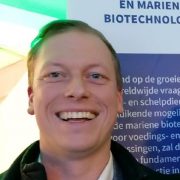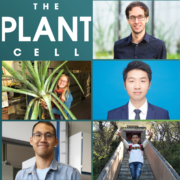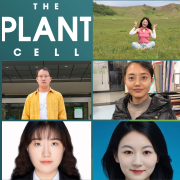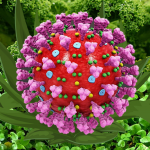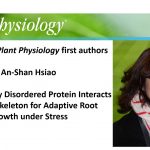Insights into a multifaceted career in plant genomics: Informational interview with Prof. Michele Morgante
Informational Interview by Conviron Scholar Sessen Daniel.
Michele Morgante is a plant geneticist, currently full professor of genetics at the University of Udine, Scientific Director of the Institute of Applied Genomics (IGA) and former president of the Italian Society of Plant Genetics (SIGA). His career spanned across several fields, from the academic setting at University of Udine to the industry domain at DowDuPont™ Agriculture Division (now Corteva Agriscience™), from entrepreneurship with IGA to science communication. The common thread throughout his work has been the implementation of genomic tools, computational approaches and biotechnology techniques to dissect the genetic and phenotypic variability of biological systems and unravel the genetic architecture of agronomic traits. His group has been involved in the first sequencing of the grapevine, peach, citrus, barley, spruce, olive, black poplar and coffea genomes. In this talk, we look through his career journey in plant genomics and his advice for students aiming at undertaking this path.

- Prof. Morgante, thank you for taking your time to join this informational interview. I’m very pleased to have the opportunity to interact with a remarkable plant geneticist whose career spanned across several fields and who can provide crucial career insights. So let’s start with your background:what made you choose to pursue a career in plant sciences?
My early academic career was determined by rather fortuitous choices. Right after graduating from high-school, I wanted to pursue a philosophy degree at university, but then had to reconsider the choice in light of my family’s objections and the career prospects that would lie ahead. I then read something about agricultural biotechnology being a cutting-edge field offering broad opportunities, and that’s how I decided to undertake this path.
- How important were good mentorship, a good training environment and academic self-efficacy during your academic upbringing?
I have to say that excellent mentorship and a great motivational load have set milestones in my career. During my graduate studies and as an early career researcher, I was lucky enough to be mentored by a senior scientist who stimulated and supported my independent and creative thinking, encouraged me to pursue new areas of research and to explore new career paths. Although that research environment was not one of the most remarkable in the field, it was definitely crucial for my upbringing as a scientist and, above all, allowed me to embrace the concept that there are more gains in sharing your knowledge rather than keeping it on your own.
- A crucial point in your career was the shift from a post-doc at University of Udine to an industry post-doc at DowDuPont™, in Delaware. How have the skills and knowledge acquired in an industry environment changed your research perspectives?
The industry setting firstly allowed me to acquire an “efficiency-centered” mindset, that is essential when you need to handle massive amounts of data, optimize processes and resources, manage several deliverables and deadlines and, in general, deal with a high-throughput enterprise such as genomics. Another key point that I’ve learnt during my time in industry is that there are potential applications for basic research, even if they’re not immediately foreseeable. I don’t think the distinction between basic and applied research is as clear-cut as many believe: if you do good research, you might as well end up finding on-ground applications for it.
- Several early career researchers from Italian academic institutions are confronted with the choice of pursuing a career in plant genomics in Italy or abroad: what are the benefits and downsides of choosing between the two, in terms of career advancement opportunities, academic tenure, economic and life perspectives?
I have to admit that, given the severe cuts to university and research funds put in place in the past twelve years because of the economic downturn, the Italian research environments isn’t as bright as it could be. My advice for early career researchers is to be exposed to different research environments and career paths abroad, seek independence from mentors and-another concept that I’ve come to embrace- “give back” what you have received, by contributing to the advances of research in your environment.
- After several years of experience at DuPont you decided to return to Udine, where you were tenured and then promoted to full professor of genetics at the University of Udine and where you lead a private, non-profit research organization that conducts cutting-edge, multidisciplinary and translational research in structural and functional genomics, molecular biology and bioinformatics. Was this shift in your career path driven by a desire to make an impact in your home environment or by new research opportunities?
My return to Udine was initially driven by a range of family reasons. Once back, I was able to network with peers that shared my outlooks to establish leading plant genomics research in the Italian science scenario. And that’s how we founded the Institute of Applied Genomics (IGA), first with the support of the regional government and then with funding from private companies and agencies. That was quite an interesting adventure.
- On top of your academic career, you have held various leadership positions: founder and scientific director of the Institute of Applied Genomics (IGA), former president of the Italian Society of Plant Genetics (SIGA), member of several evaluation panels and the University of Udine’s delegate for research and technology transfer. How have you been able and still manage to reconcile your PI responsibilities, professorship activities and mentoring with these managerial and administrative functions?
It is very challenging indeed, but I think proper time management makes everything feasible. Moreover, I am motivated by the ideal of “returning” what I have received for my establishment as a scientist by giving my share in broader scientific contexts. I must admit, though, that nothing exceeds my willingness to continue doing research, to lecture and to mentor.
- You have also been involved in several public outreaching initiatives aimed at spreading awareness on the state-of-art, applications and potentials of genetic engineering in agriculture. How important do you think public engagement and scientific dissemination programs are for students and researchers aiming at pursuing a career in the field?
I believe that there is a strong need for scientists trained in communication that are able to get the science message across to the public. One of the key lessons I’ve learned throughout my career is that the message of “scientists holding the truth” does more harm than good in raising public awareness on complex issues: we need to use the right language, provide examples of tangible benefits and get rid of this idea of the “scientist in the ivory tower”. And to do so, we need to work side-by-side with communication experts and learn the skills required.
- If you were to look back at your academic training and career, are there any choices that you would have made differently or any other different career trajectories that you would have undertaken?
I have made several mistakes throughout my career…A recurring one concerns my interpersonal interactions with peers. I tend to be very straightforward, and in many occasions it would have been useful for me to be less direct.
- Let’s now turn to common academic experiences that are hardly ever discussed: the “Publish or Perish” dilemma, repeated rejections, “Impostor Syndrome”. How have you dealt with these experiences at the various stages of your career and what suggestions would you give to students and early career researchers having to cope with such woes?
I admit that I’ve never been obsessed with the idea of publishing frequently, an unmotivated pressure that the academic system places on us. As a matter of fact, I haven’t published as much as I could have so far and I’m more interested in making lasting contributions rather than publishing papers that nobody reads. I often tell young researchers that when big research institutions have to make their choices, they don’t care if you have published 20 or 30 papers, as far as you have 5 first-authored papers published in well-regarded journals. Other pieces of advice I would give young researchers having to cope with the woes you’ve mentioned – that are intrinsic to life as scientists -are to be meticulous in their work and to persevere. It takes a long time to build a reputation, but very little to destroy it. But if you’re meticulous and persevering, you’ll build up a thick skin that will get you through where you want to be.
- Plant genomics is a rapidly moving field with many opportunities, many new frontiers and new challenges. Moreover, we’re in the midst of the big-data dominated post-genomics era, where the bottleneck is no longer the production of genomic data, rather the “mining” of useful biological information from this massive amount of data, the attribution of meaning to this information and its implementation. In this scenario, what are the specific tool sets and essential skills that prepare students and early career researchers to become plant geneticists? What is your ideal of a “plant geneticist” today?
In order to keep up with the big-data revolution, we need to turn plant genomics into a largely interdisciplinary and comprehensive field that integrates mathematics, statistics and computational science. Therefore, there is an urge for researchers with a solid background in those fields and with versatile, creative and independent thinking. I seek for this type of plant geneticists today.


